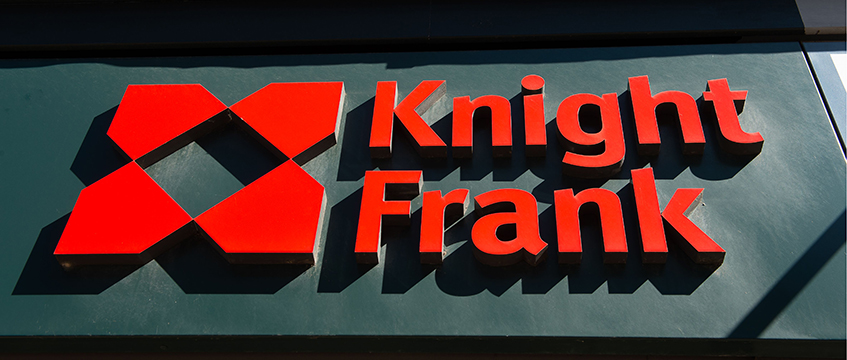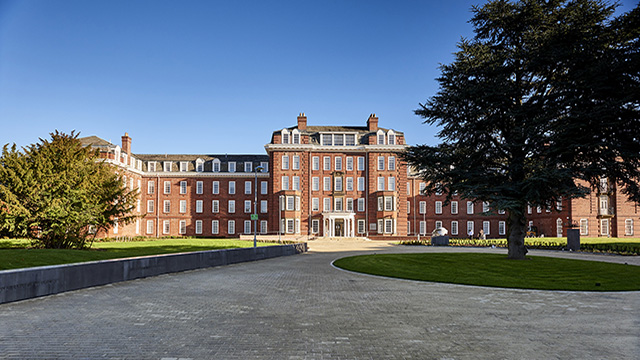
A steal, a prize, the sale of the century. For about £15m up front, plus a £7m revolving credit facility, SEGRO’s tie-up with Rugby-based Roxhill gives it access to up to 20m sq ft of logistics development potential, and about 1,400 acres of optioned land. As deals in the big box sector go, it could hardly be more comprehensive or dramatic. And what a price, say stunned observers.
SEGRO’s motives are clear. For what chief investment officer Phil Redding calls a “relatively small upfront payment”, it gets instant promotion to the big league of logistics developers. It buys the company options on 11 sites amounting to 1,400 acres with perhaps 20m sq ft of potential development. The deal could unlock schemes worth £800m.
Redding explains: “We felt we were subscale on logistics in a sector where scale is important, and we wanted to increase our exposure. We’d been working with Roxhill and felt that forming a partnership with them, and building out their portfolio, was the best way to do it.”
The idea was in SEGRO chiefs’ minds as far back as 2013, when the two businesses jointly acquired the 125-acre Rugby Gateway site. The Rugby deal – their first big venture into pure logistics, capable of taking 1.8m sq ft – was the third and most substantial of a series of suck-it-and-see partnerships with Roxhill, including sites in Portsmouth and Enfield. All sides declared Rugby to have been a success and in 2014 SEGRO attempted to take the relationship a step closer. Back then, Roxhill investors appear to have eschewed the partnership. Two years on, they have gracefully consented.
“The deal gives us lots of options on what we draw down, and when we bring our balance sheet into play to accelerate what they can do,” says Redding.

The portfolio of 11 sites excludes those Roxhill has already got to advanced stages. Its 90-acre Junction 10 business park site at Kettering was acquired directly as part of the deal (another bargain, say observers), and SEGRO did not want the 240-acre Gateway Peterborough, deterred by the site’s residential element and the (rumoured) 30-acre land sale to House of Fraser.
“Roxhill will wrap up the rest of their business, and then they will work exclusively with us,” says Redding.
Len Rosso, head of logistics at Colliers International, is full of admiration. “SEGRO has negotiated a big entry point into a very popular market – they’ve jumped a number of rungs on the ladder,” he says.
Perhaps a timely move, say some analysts. That’s because SEGRO’s core business – the London and Thames Valley mid-size multi-let industrial scene – will struggle to deliver the pace of growth Redding and his team might aspire to. Some describe this particular market as “saturated”. Certainly a tight and expensive one, with limited opportunities to build.
The consensus is that SEGRO has done itself a favour. Mark Webster, head of the national logistics team at Cushman & Wakefield, and a long-time adviser to SEGRO, says: “The Roxhill tie-up absolutely fits with SEGRO’s settled plan of getting into the key logistics markets around the UK, and the deal means the new partnership has the cash and the big box credibility to do that.”
So full marks to SEGRO. What nobody can quite understand is, what is in this for Roxhill?
Top of the list of potential reasons is that Roxhill may have more land than it can conveniently process. Acquiring options on good sites may have involved acquiring options on some less good farmland along the way (SEGRO says it hopes to see 10m sq ft developed within 10 years, from the 20m sq ft possible under the deal).
The upshot could be a Roxhill portfolio not all of which is easy to develop, and every bit of which will be expensive to progress. SEGRO says that the £7m revolving credit facility it has extended is intended to help cover the huge upfront planning costs. Eventually SEGRO’s strong balance sheet can help cover the equally large infrastructure costs.
Roxhill managing director Jason Dalby says: “We came to a point in 2015 when we started to secure planning permissions and had to take up options on sites when we saw we didn’t have anything like the capital necessary to take them forward. So the choice was to sell out or take on a partner. So we found a partner who had the capital. We found a partner in SEGRO who we knew and had worked with before, had the capital, and the aspiration to own the schemes. The alternative would have been a series of joint ventures, which would not have been as straightforward.”
The second possible explanation is that either Roxhill investors – or executive chairman David Keir – want an exit more than they did in 2014, the last time SEGRO made advances. Backers – comprising the management team, Mark Glatman’s Abstract Securities, CBRE Global Investors and Forum Partners – have agreed to a deal which offers SEGRO the chance to buy out the business in 2018.
“Maybe the investors just want to spend their resources on something else?” says one observer.
Whether Keir himself will stay with Roxhill in the medium term remains unclear. Roxhill is his fourth industrial property business, following Ashford Developments, Kingspark (sold to Prologis) and Rosehill/Rosemound (sold to Goodman). Some speculate that a fourth sale (to SEGRO) might lead a man in the prime of life to found a fifth business.
SEGRO’s Redding is full of praise for Keir and Dalby. He says: “We have rights to buy out all the remaining interests in the Roxhill business. David and Jason Dalby may choose to retire or stay – we certainly rate them highly, and if they stick around that would be great.”
Dalby says: “We have said we will proceed on the 11 sites in the partnership with SEGRO, and then we will see where we are. We will have to sit down and have a discussion. That doesn’t mean that we won’t form another company, but it doesn’t mean we will.”
Whatever the puzzles, it’s clear the partnership means big changes for SEGRO and for regional warehouse markets.
Roxhill is said to be scouting for a North West site – something SEGRO’s Redding hints is very much to be welcomed. If a site is found – and talks are said to be at a tipping point – it will join the SEGRO/Roxhill partnership.
In the Midlands, too, the SEGRO investment will mean changes – not least by kickstarting some substantial schemes that might otherwise languish.
David Wilmer, Birmingham-based director at Bilfinger GVA, says: “There’s certainly going to be an impact on the Midlands. Sites like the 6m sq ft East Midlands Gateway at Kegworth are huge and need financial force to get them going, and the same goes for Roxhill’s land around Coventry airport.”
The universal view is that SEGRO has done a very clever thing, quickly and painlessly, and at a good price. The trick now will be to make the best of the opportunity.

How the deal works
In return for about £15m up front, and a £7m revolving credit facility to help pay for planning permission, SEGRO has an option on Roxhill’s 11 warehouse sites.
As each site secures planning permission, or reaches other significant milestones, SEGRO can exercise an option to purchase. This involves a payment determined in advance, plus an extra sum depending on market value at the time. If SEGRO does not want to develop itself, it can take the site and sell it. If it decided not to exercise the option at all – unlikely but possible if planning permission is not forthcoming, or is too limited – then Roxhill’s investors will offload it themselves.
The developments should generate an estimated blended yield on cost of approximately 7% at today’s rental levels.
The terms of the transaction avoid the initial drag of holding non-income producing land on SEGRO’s balance sheet.
Roxhill will be responsible for taking sites through planning, and will usually be development manager.
Development rather than acquisition
SEGRO has been repositioning itself towards development – and away from acquisitions – for some time.
Around 571,500 sq ft of developments were completed in the first quarter of the year, almost all of which are now let, generating £2.8m rent.
Even before the Roxhill tie-up, more than 1.7m sq ft of development is in the pipeline for 2016, with around 1m sq ft prelet.










